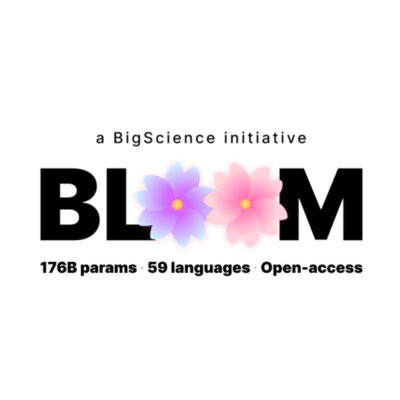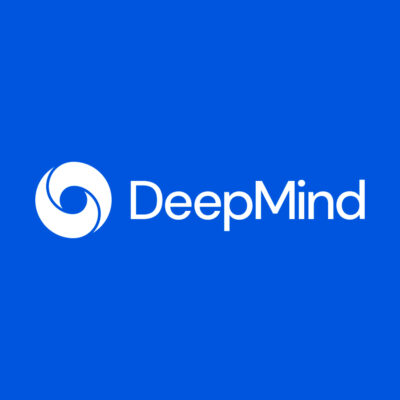Compare Models
-
Stanford University
Alpaca
FREEStanford University released an instruction-following language model called Alpaca, which was fine-tuned from Meta’s LLaMA 7B model. The Alpaca model was trained on 52K instruction-following demonstrations generated in the style of self-instruct using text-davinci-003. Alpaca aims to help the academic community engage with the models by providing an open source model that rivals OpenAI’s GPT-3.5 (text-davinci-003) models. To this end, Alpaca has been kept small and cheap (fine-tuning Alpaca took 3 hours on 8x A100s which is less than $100 of cost) to reproduce. All training data and techniques have been released. The Alpaca license explicitly prohibits commercial use, and the model can only be used for research/personal projects, and users need to follow LLaMA’s license agreement. -
BigScience
BLOOM
FREEBigScience Large Open-science Open-access Multilingual Language Model (BLOOM) is a transformer-based LLM. Over 1,000 AI researchers created it to provide a free large language model for everyone who wants to try and it is a multilingual LLM. BLOOM is an autoregressive Large Language Model (LLM), trained to continue text from a prompt on vast amounts of text data using industrial-scale computational resources. It can output coherent text in 46 languages and 13 programming languages. It is free, and everybody who wants to can try it out. To interact with the API, you’ll need to request a token. This is done with a post request to the server. Tokens are only valid for two weeks. After which, a new one must be generated. Trained on around 176B parameters, it is considered an alternative to OpenAI models. There is a downloadable model, and a hosted API is available. -
BloombergGPT
BloombergGPT
OTHERBloombergGPT represents the first step in developing and applying LLM and generative AI technology for the financial industry. Bloomberg GPT has been trained on enormous amounts of financial data and is purpose-built for finance. The mixed dataset training leads to a model that outperforms existing LLMs on financial tasks by significant margins without sacrificing performance on general LLM benchmarks. Bloomberg GPT can perform a range of NLP tasks such as sentiment analysis, named entity recognition, news classification, and even writing headlines. With Bloomberg GPT, traders and analysts can perform financial analysis and insights more quickly and efficiently, saving valuable time that can be used for other critical tasks. To use Bloomberg GPT, you need access to Bloomberg’s terminal software (a platform investors and financial professionals use to access real-time market data, breaking news, financial research, and advanced analytics). Bloomberg also offers a variety of other subscription options, including subscriptions for financial institutions, universities, and governments. The price of a Bloomberg terminal varies depending on the type of subscription and the number of users. -
OpenAI
ChatGPT (Web Browser Version)
FREEThe ChatGPT Web Browser Version is an accessible online powerful language model. The chatbot is designed to provide users with a user-friendly interface that facilitates interaction without needing any specialized programming or machine learning knowledge. Users can leverage ChatGPT for a wide range of applications, including but not limited to tutoring in academic subjects, generating creative content, drafting and editing text, providing personalized recommendations, translating languages, and even programming help. Businesses can use it for automating customer service, generating marketing content, and providing personalized user experiences.ChatGPT is powered by GPT-3.5-turbo by default and is free to try. If you are a paying customer and subscribe to ChatGPT Plus, you can change the model to GPT-4 before you start a chat. Currently, the ChatGPT models support several languages, including but not limited to English, Spanish, French, German, Portuguese, Italian and Dutch. New features for ChatGPT-Plus users have just been announced. These include a web-browsing feature that provides up-to-date information (prior to the update, ChatGPT was limited in what it could answer, as it was only trained on data until 2021). ChatGPT-Plus users can also access third-party plug-ins for web services like Expedia, Kayak, and Instacart. With these plug-ins, users can prompt ChatGPT to perform tasks on specific websites. -
Deepmind
Chinchilla AI
OTHERGoogle’s DeepMind Chinchilla AI is still in the testing phase. Once released, Chinchilla AI will be useful for developing various artificial intelligence tools, such as chatbots, virtual assistants, and predictive models. It functions in a manner analogous to that of other large language models such as GPT-3 (175B parameters), Jurassic-1 (178B parameters), Gopher (280B parameters), and Megatron-Turing NLG (300B parameters) but because Chinchilla is smaller (70B parameters), inference and fine-tuning costs less, easing the use of these models for smaller companies or universities that may not have the budget or hardware to run larger models.
-
RedPajama
RedPajama-INCITE-7B-Instruct
FREEThe RedPajama project aims to create a set of leading open source models. RedPajama-INCITE-7B-Instruct was developed by Together and leaders from the open source AI community. RedPajama-INCITE-7B-Instruct model represents the top-performing open source entry on the HELM benchmarks, surpassing other cutting-edge open models like LLaMA-7B, Falcon-7B, and MPT-7B. The instruct-tuned model is designed for versatility and shines when tasked with few-shot performance.The Instruct, Chat, Base Model, and ten interim checkpoints are now available on HuggingFace, and all the RedPajama LLMs come with commercial licenses under Apache 2.0.Play with the RedPajama chat model version here – https://lnkd.in/g3npSEbg -
StableLM
StableLM-Base-Alpha -7B
FREEStability AI released a new open-source language model, StableLM. The Alpha version of the model is available in 3 billion and 7 billion parameters. StableLM is trained on a new experimental dataset built on The Pile, but three times larger with 1.5 trillion tokens of content. The richness of this dataset gives StableLM surprisingly high performance in conversational and coding tasks, despite its small size. The models are now available on GitHub and on Hugging Face, and developers can freely inspect, use, and adapt our StableLM base models for commercial or research purposes subject to the terms of the CC BY-SA-4.0 license.








